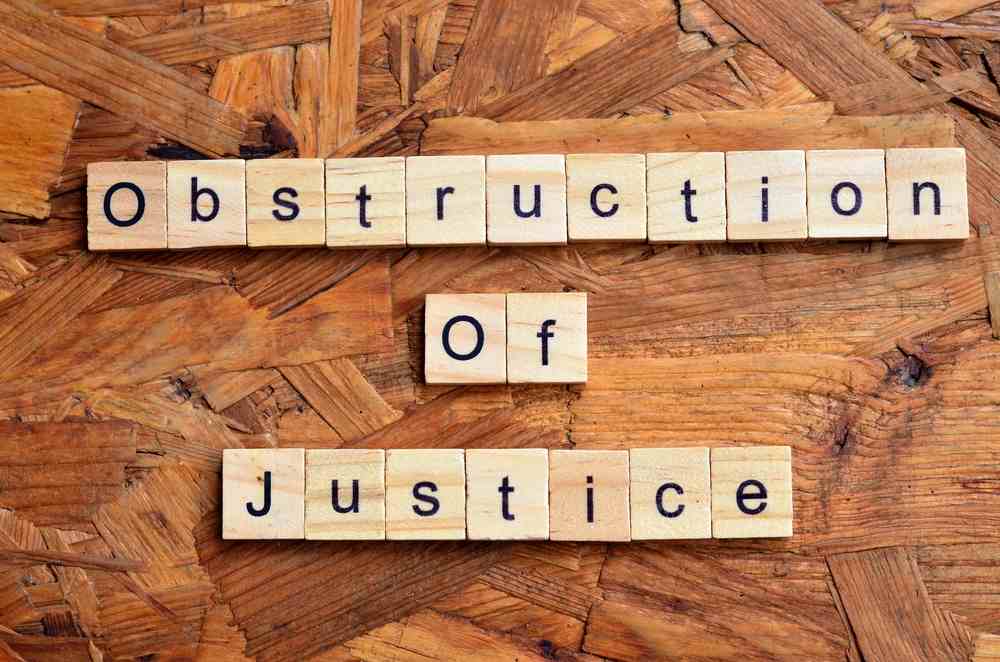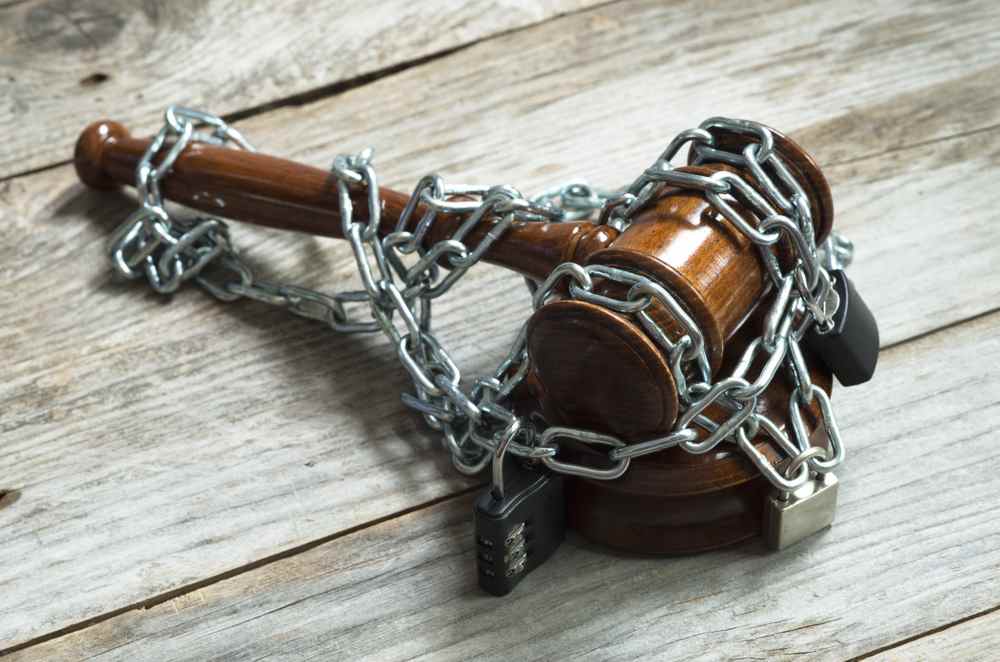Under federal statutes, obstruction of justice is defined as any act that “corruptly or by threats of force, or any threatening letter or communication, influences, obstructs, or impedes, or endeavors to influence, obstruct, or impede, the due administration of justice.” This can fall into three categories.
Interference with judicial processes and court proceedings can occur when someone:
Obstructs, resists, opposes, assaults, or exposes process servers and extradition agents in the execution of their duties
Attempts to influence, threaten, intimidate, or impede a juror, grand jury, court officer, judge, or magistrate
Retaliates against a federal judge or federal law enforcement officer by making false claims against or slandering them
Tries to influence a juror through written communication or by picketing or parading outside a courtroom
Records the deliberations or voting of a jury, or observes or listens in on a jury one is not part of
Steals, falsifies, or in other ways tampers with the proceedings of any court in the United States so that a judgment is reversed, voided, or fails to take effect or effects a false release or bail
Tampers with or retaliates against a witness, victim, or an informant in a trial or legal proceeding, including killing or attempting to kill, in order to prevent evidence from being shared
Uses threats or force to prevent, obstruct, or interfere with the performance of a court order
Interference with law enforcement and investigation of a crime occurs when someone:
Obstructs a pending investigation by Congress, or a committee of either House, a federal administrative agency, or a federal department, or the Armed Forces
Obstructs pending investigations involving the insurance industry, federal audits, financial institutions, or health care offenses
Conspires to obstruct law enforcement in order to facilitate illegal gambling
Destruction or concealment of evidence occurs when someone:
Falsifies records in federal investigations and in bankruptcy cases or destroys corporate audit records
Commits bribery
Threatens, uses physical force, or assaults someone
Tampers with evidence: concealing, destroying, altering, or falsifying documents and written and oral testimony
Makes false statements mean to mislead investigators by intentionally omitting relevant information, concealing material facts, creating a false impression, knowingly submitting or inviting reliance on physical evidence that is false, forged, or altered
Abuses power to prevent or obstruct compliance by others with an investigator or judicial proceeding
Depending on which type of obstruction is committed and what code it falls under, the elements required for an obstruction of justice conviction can differ. The person must always have acted with the specific intent to create an obstruction in order to be convicted, but they do not have to be successful.
